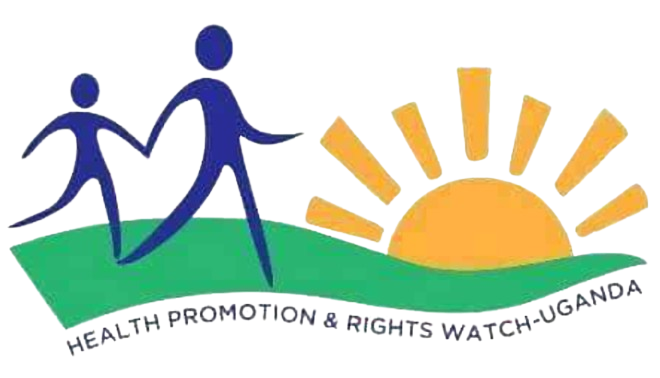
Health Promotion and Rights Watch Uganda recently organized an engaging and educational activity to enhance community-based capacity in sustainable agricultural practices and food production. Held at our training center in Bushenyi District, this initiative aimed to empower Small holder households with the necessary skills and knowledge to improve soil fertility, reduce dependency on monocropping, and increase resilience to environmental shocks.
During the activity, participants that included selected small holder farmers from the sub counties of Kyeizooba and Rwenthaa TC received comprehensive training in diversified farming practices. This included hands-on sessions on the use of fertilizers and improved seeds, which are essential for boosting crop yields and enhancing soil health. Trainers demonstrated how these practices can lead to more abundant harvests and healthier crops, benefiting both the community’s food supply and individual households’ nutrition.
Effective pest and disease management techniques were also a key focus of the training. Participants learned how to identify common pests and diseases, as well as sustainable methods to control them. This knowledge is vital for maintaining healthy crops and preventing significant losses due to infestations or diseases.
One of the highlights of the event was the community nutrition education sessions. These sessions emphasized the importance of a balanced diet and demonstrated how to plan nutritious meals using locally available foods. Participants were trained as community nutrition ambassadors, equipped with the knowledge to share these practices with their peers and families.
Promoting climate-smart agricultural practices was another essential aspect of the activity. Households were trained to adopt climate-resilient, drought-resistant, and high-yield crop varieties within diversified farming systems. Practical demonstrations on environmental, soil, and water conservation techniques, such as mulching and water-saving irrigation methods like drip irrigation, were provided. Participants were also given access to agroforestry materials, such as fruit trees, to diversify their farming practices and improve sustainability.
An interactive segment on organic fertilizers, composting and bio pesticides added another layer of education. Households were shown how to create compost from animal waste and use natural methods to protect their crops from pests. This not only reduces reliance on chemical inputs but also promotes a healthier and more sustainable agricultural system.
The benefits of this initiative extend beyond individual households. As farmers adopt sustainable practices and see positive results, the entire community experiences enhanced food security and economic growth. The ripple effects of improved agricultural practices contribute to the overall resilience and well-being of the community.
Community members expressed their appreciation for these efforts. Kyaligonza of Rubirizi remarked, “The training we’ve received has transformed our farming practices. We’re now more resilient to environmental changes, and our yields have significantly improved.” Mrs. Allen Byaruhanga of Kyeizooba in Nyamiyaga Parish added, “These interventions have made a huge difference in our lives. We’ve learned so much and can now provide better nutrition for our families while also boosting our income.”
As Health Promotion and Rights Watch Uganda we are committed to building a brighter future for our communities. By empowering farmers, particularly women, with the tools and knowledge they need.
